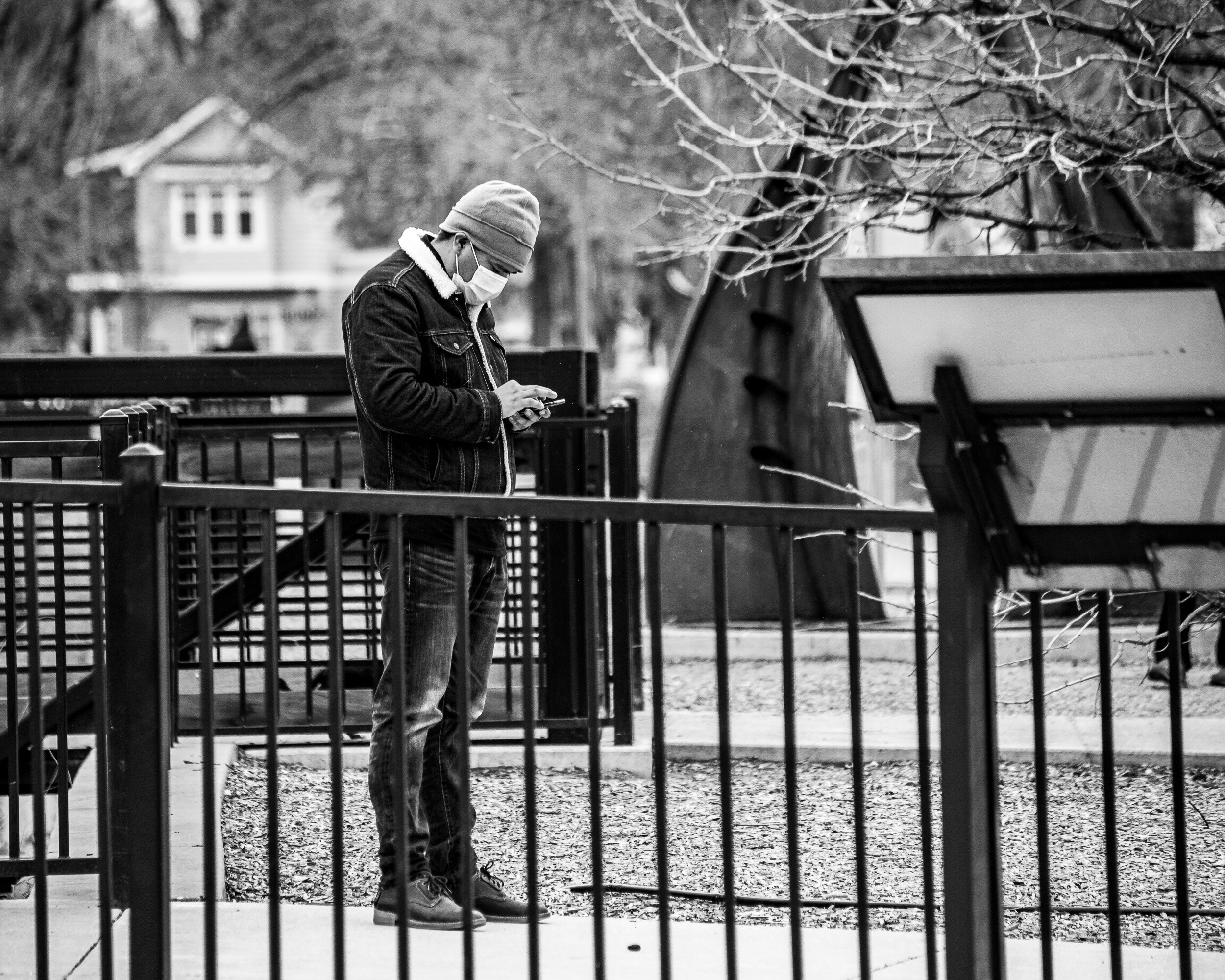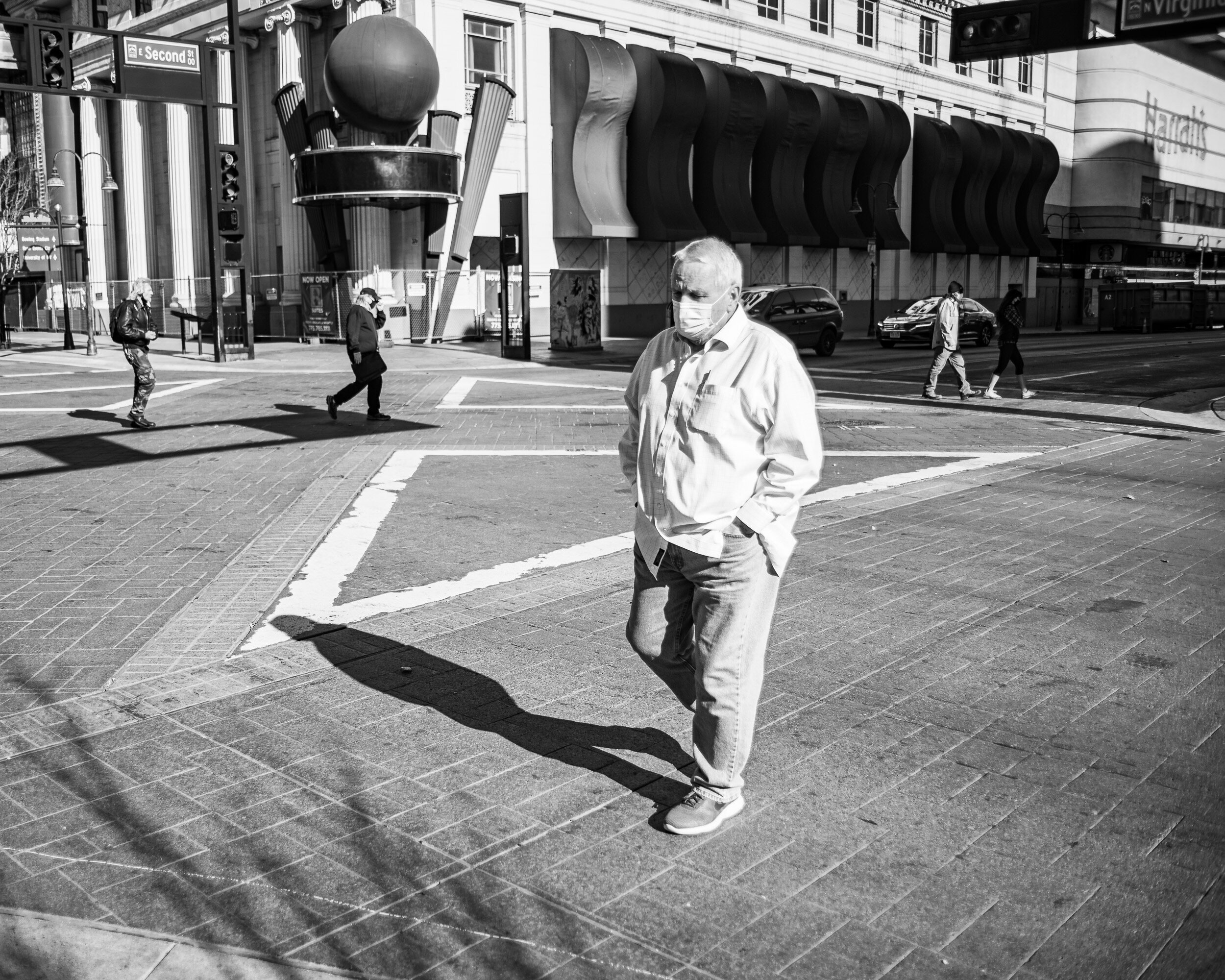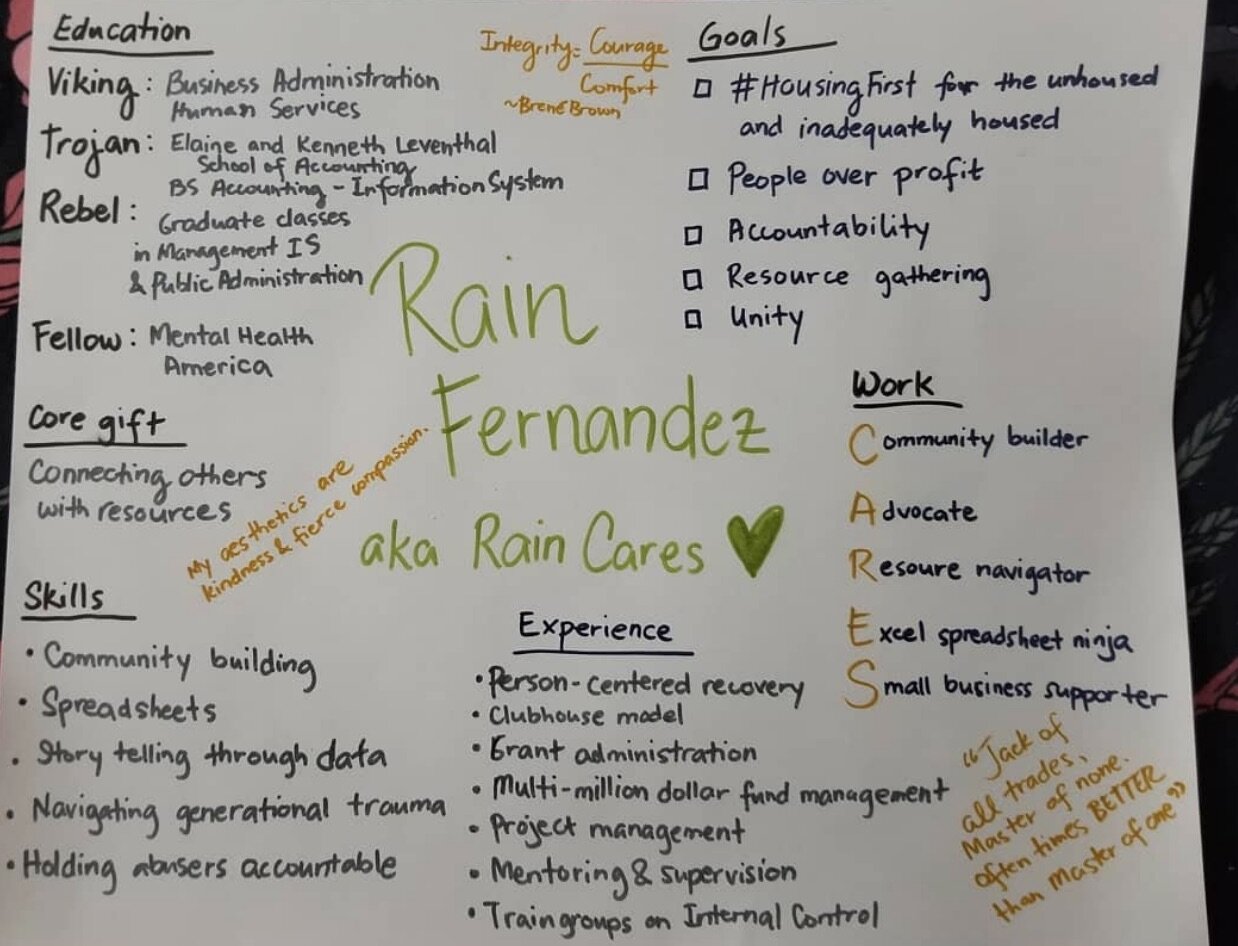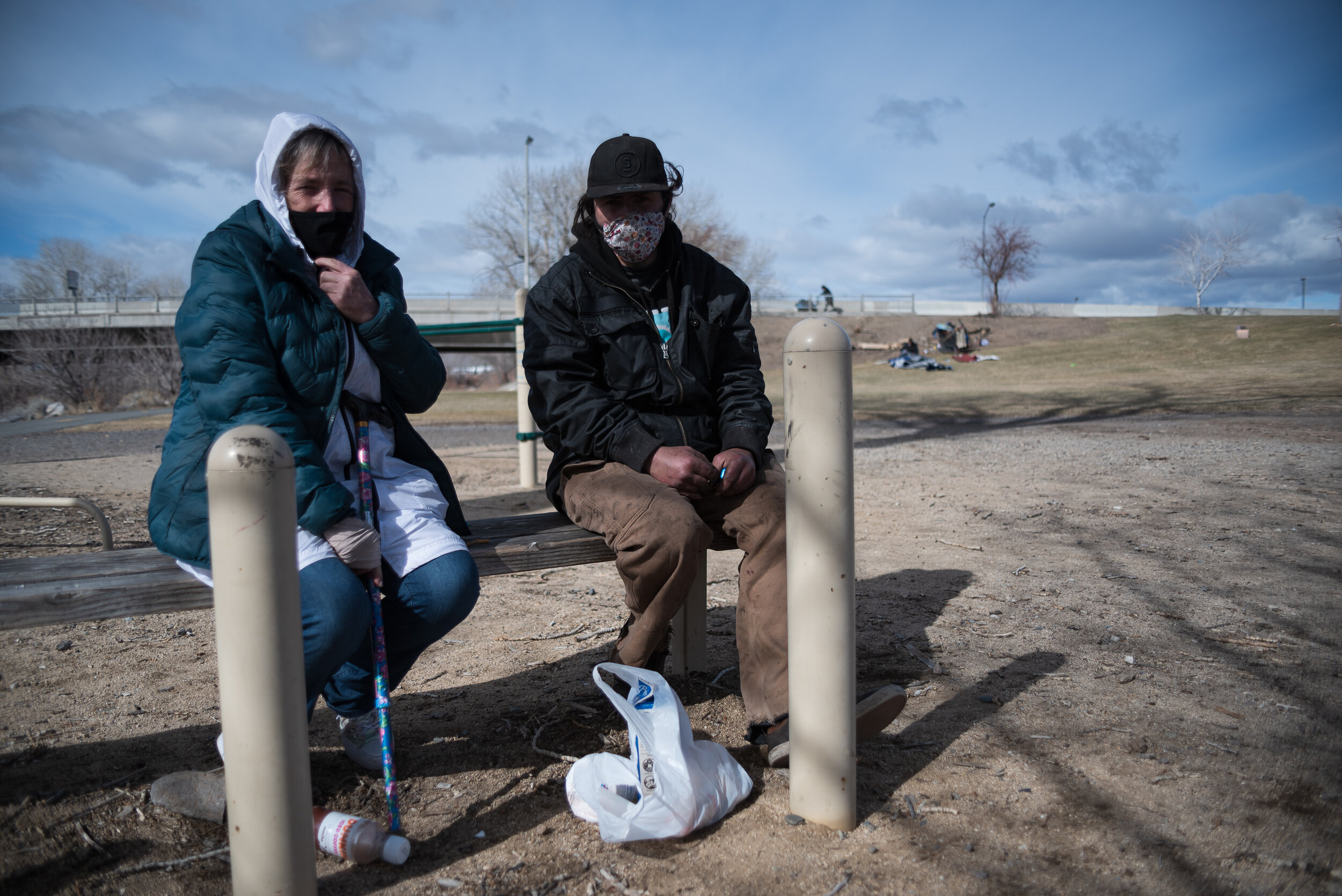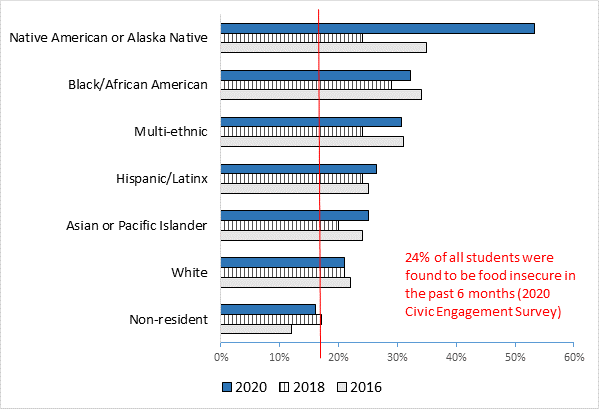Since the COVID-19 pandemic took hold of the United States almost one year ago, Jeremy and his wife have periodically been without shelter. This is their second time camping by the river and it's an experience that Jeremy says is difficult, particularly due to the health complications he’s been suffering lately.
“At the beginning of this year, we were out here and then all summer long we were indoors and we came back out here again because money ran out,” Jeremy said. “We've been out here about two months, at least this time around, and I had my third heart attack three weeks ago, so it's rough. But other than that, I'm all right.”
Jeremy speaks positively about his experience with the healthcare system, particularly considering how much he’s needed them recently.
“Right now, I'm really pleasantly pleased with the healthcare system,” Jeremy said. “I've never had these kinds of benefits, being on Medicaid. They're taking great care of me right now as far as that goes. My [prescriptions] are pretty expensive, but they want me to get better. They don't want me to die and I don't want to die, either. Not right now, not too soon.”
Due to his health-related challenges, he has been unable to work. So earlier this year his wife was still working to get them by, but that all changed when COVID-19 shut down the country.
“My wife was working, she was doing everything she could to keep us afloat and everything started going downhill as soon as a COVID hit,” Jeremy said.
Despite the seriousness of the pandemic and how it could affect Jeremy’s already declining health, he recognizes that there’s only so much he can do to protect himself while cases continue to surge in Washoe County.
“Now [COVID] is really rolling in and getting us and if [COVID] gets us, it gets us,” Jeremy said. “But I'm hoping we don't get it. I'm hoping the majority of us are smart enough that even if we're [living] out here, we can make it through.”
Although Jeremy wore a mask when he spoke with Our Town Reno, he admits he’s not as cautious as he should be. “I'm not changing much of anything but if I get [COVID] I'm going to die for sure,” Jeremy said. “I'm already a recovering drug addict as it is and I can admit that. I smoke a lot of pot and have done a lot of speed in my time and that's one of the biggest contributors to my [declining] health.”
His biggest disappointment as it relates to COVID, however, is how it’s changed how people interact with each other. “So many people have changed [because of COVID],” Jeremy said. “I mean, you guys are about some of the friendliest people that I've talked to in awhile that just came up to me and wanted to talk to me. You try to talk to anybody else and they think you're the plague. All of a sudden we have a pandemic on our hands and everybody's just staying away from you because you're a bug.”
Aside from COVID, Jeremy is concerned about what happens in camps along the river, including the worst that can happen.
“This place is scary as f***, dude, it's all bad down here,” Jeremy said. “At the beginning of last year, my buddy Mike actually got shot and killed right up here. He was sitting on the toilet and a dude put five rounds in his chest over something stupid.”
Jeremy wasn’t along the river when his friend was killed, as that same night he and his wife were in the process of moving their camp from their spot on the river over to Fisherman’s Park.
“The night we moved away from here is when Mike got shot and it was very, very real,” Jeremy said. “You could hear the gunshots clear as day. I was only gone 15 minutes, I took one load down to Fisherman's Park and came back and everybody over here was all crying and I'm like, ‘What the hell is going on?’”
Jeremy was told that his friend Mike had been killed, and he and his wife went on to move three times over the next couple of months. But now that they’re back to camping by the river, that reality has stayed with Jeremy.
“Every night we hear fights over here, every day,” Jeremy said. “There ain't nobody running nothing around here but their mouths. The first day we were out here we were seeing people sword-fighting with machetes, really it’s stupid.”
Although this is his second bout with homelessness, Jeremy says his wife has handled the transition better than he has.
“My wife, she ain't never seen none of [this], never in her life has she been homeless,” Jeremy said. “This has been her first time and she's taken it better than I am, really. I mean, she's got her head on a lot clearer than I do in a lot of instances. She's my rock.”
Some of the most difficult things he’s seen since being homeless, Jeremy says, are the fires that occasionally break out.
“I've seen some crazy shit down here, you’ll see ten fires down here, dude,” Jeremy said. “You never think a tent would go up [in flames] but when they go up, it’s pretty bad and it's the scariest shit. I mean, you're just not going to get out.”
Consequently, between his heart problems and the challenges of day-to-day life without shelter, Jeremy and his wife plan to move to Phoenix as soon as they’re financially able to.
“I'm trying to get out of here and I'm trying to go to Phoenix when I can, because that's where the rest of my family is and it might be better for my health,” Jeremy said. “I’m 45 and I shouldn't be having these issues at 45. I’m a grandfather to twelve grandkids and I don't look like I should be a grandfather, it kind of sucks. I'm no kind of role model with my grandkids.”
When asked how soon he plans to move, Jeremy said it’s difficult to make plans beyond the day-to-day when you’re without shelter like him.
“I'm on the day-to-day plan,” Jeremy said. “I'm not even on the one-year, five-year or 10-year plan at this point. All we're worried about right now is if we can get the money and get out of here. As soon as the timing is right, we're out.”
Despite everything that this year has thrown Jeremy’s way, he hopes that everyone can pull through this year, together.
“Don't give up, keep trying and you’ll eventually get out of that hole,” Jeremy said. “I'm going to get me and my girl out of this hole one way or another. That's all I can do and she's been the one doing it all, really. I got to give her the credit, not me. She's been my rock. But don't give up is all that I can say. This is all a part of life and we’re all in this thing together dude, that’s all it is.”
Reporting by Scott King for Our Town Reno




